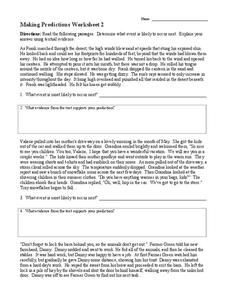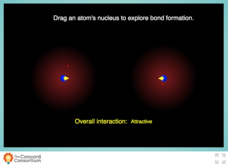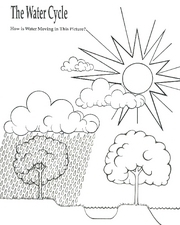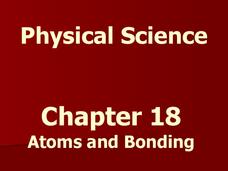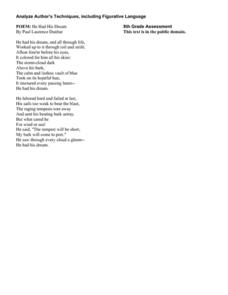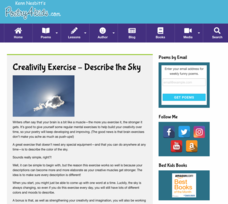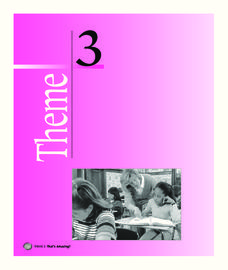Sunburst Visual Media
Clouds
Support science instruction with a combination of engaging activities and skills-based worksheets that focus on clouds. Learners take part in grand discussions, write an acrostic poem, complete graphic organizers, solve word...
Concord Consortium
Deformed Electron Cloud
Dispel the misconception that atoms are always little round balls! Illustrate changes in the electron cloud with an entertaining interactive. Pupils push and pull on the cloud by altering the charge on plates located on either side of...
E Reading Worksheets
Making Predictions #2
What happens next? Learn to make predictions with five short passages. As kids finish reading each passage, they jot down what they think will happen next, as well as the evidence from the text that supports their prediction.
North Carolina Museum of Natural Sciences
Weather Watch Activity Guide: Groundhog Day
Exactly what do groundhogs know about weather? Not as much as your science students will after completing these lessons and activities that cover everything from the earth's rotation and the creation of shadows, to cloud...
DLTK
Groundhog Paper Craft
Get crafty this Groundhog's Day with a hands-on activity that combines creativity and making predictions. Scholars color, cut out, and put together a friendly image of a groundhog and showcase whether they feel the weather will be sunny...
PBS
The Cat in the Hat Activity Exploring Weather
Observe different types of weather right in your classroom! Here, pupils look at clouds, rain, snow, wind, and hot and cold temperatures, and observe these weather patterns at school. They keep track of their observations in a worksheet...
Concord Consortium
Forming a Molecule
What does it look like when two atoms bond? Mol-e-COOL! Aspiring chemists observe the interaction between two atoms forming a bond in an easy-to-use interactive. Individuals move atoms closer together and observe changes in attraction...
K12 Reader
What Happens Next?
While your students may not be psychics, that doesn't mean they can't predict what will happen next in a story. To hone this important reading comprehension skill, young learners read a series of three short...
Wordpress
Equation Table Graph
Your Algebra learners will appreciate this fabulous, two-page printable. The first page has a list of numbers that lead to the learners writing an equation in a cloud that represents these numbers, and then filling in a table, and...
Chicago Botanic Garden
Climate Change Around the World
Look at climate change around the world using graphical representations and a hands-on learning simulation specified to particular cities around the world. Using an interactive website, young scientists follow the provided...
Teachnology
Shape (Or Concrete) Poems
Poetry comes in all shapes and sizes. Young writers pick a shape, select words and phrases that describe how the shape makes them feel, and create a shape poem. A raindrop example and step-by-step instructions give your...
Concord Consortium
Energy of Bond Formation
Show your chemistry class that there's much more to covalent bonding than sharing electrons! Pupils manipulate atoms of hydrogen, oxygen, and carbon to observe the energy of bond formation using a well-rounded interactive. The resource...
State of New Jersey
The Water Cycle - How is Water Moving in This Picture?
Here is a picture of a landscape, complete with the sun, clouds, and some rain. Use it by projecting onto your whiteboard and drawing arrows and labeling three main steps in the water cycle as you teach, or hand it out to little ones as...
Berkshire Museum
Where’s the Water?: Acting Out Science Cycles
Young scientists transform themselves into rivers, oceans, clouds, and drops of water in order to explore the water cycle. After assigning and explaining to students their different roles in the activity, the teacher reads aloud a...
Mr. E. Science
Atoms and Bonding
I don't trust atoms because they make up everything. Budding scientists learn about famous scientists connected to atomic models, chemical, ionic, and hydrogen bonds. The presentation also presents how to count atoms...
Rhythm Rhyme Results
Whatʼs the Same and Whatʼs Different?
Learn about radiation, convection, and conduction with a multiple choice worksheet. Each question prompts kids to decide what is different about each form of heat energy transfer, and what is the same.
TLS Books
Jupiter
Young astronomers read an informational text on the gas giant, Jupiter. Then they answer four multiple choice questions based on what they read.
Reed Novel Studies
The Lightning Thief: Novel Study
Maybe dark clouds do have a silver lining. Just when Percy from The Lightning Thief thought of his life as doomed, he learned that his father is a Greek god. Scholars work through activities as they read how his life took a drastic...
Curated OER
Analyze Author’s Techniques, Including Figurative Language
Paul Laurence Dunbar's poem "He Had His Dream" is the focus of a quick exercise. Pupils read the poem and answer four multiple choice questions and one short answer question about specific lines in the poem and the author's purpose....
Rain Bird Corporation
Rain Forest Teaching Curriculum
Take young naturalists on an exploration of the world's tropical rainforests with this extensive collection of lessons and activities. Whether its creating leaf and flower prints or investigating the absorption spectrum of...
Poetry4kids
Creativity Exercise - Describe the Sky
Scholars stretch their writing muscles with an exercise that asks them to describe the sky using similes and metaphors.
American Statistical Association
Scatter It! (Using Census Results to Help Predict Melissa’s Height)
Pupils use the provided census data to guess the future height of a child. They organize and plot the data, solve for the line of best fit, and determine the likely height and range for a specific age.
Houghton Mifflin Harcourt
Unit 3 Math Vocabulary Cards (Grade 1)
Reinforce math vocabulary with a set of flashcards. Each card showcases a boldly typed word or a picture representation with labels. The topics are geometry related and include terms such as cones, faces, pyramids, sides, and...
Houghton Mifflin Harcourt
That’s Amazing!: English Language Development Lessons (Theme 3)
That's Amazing! is the theme of an English language development unit created by Houghton Mifflin. Following a speak, look, move, and listen routine, scholars delve into topics; seasons, weather, animals, landforms, telling...


